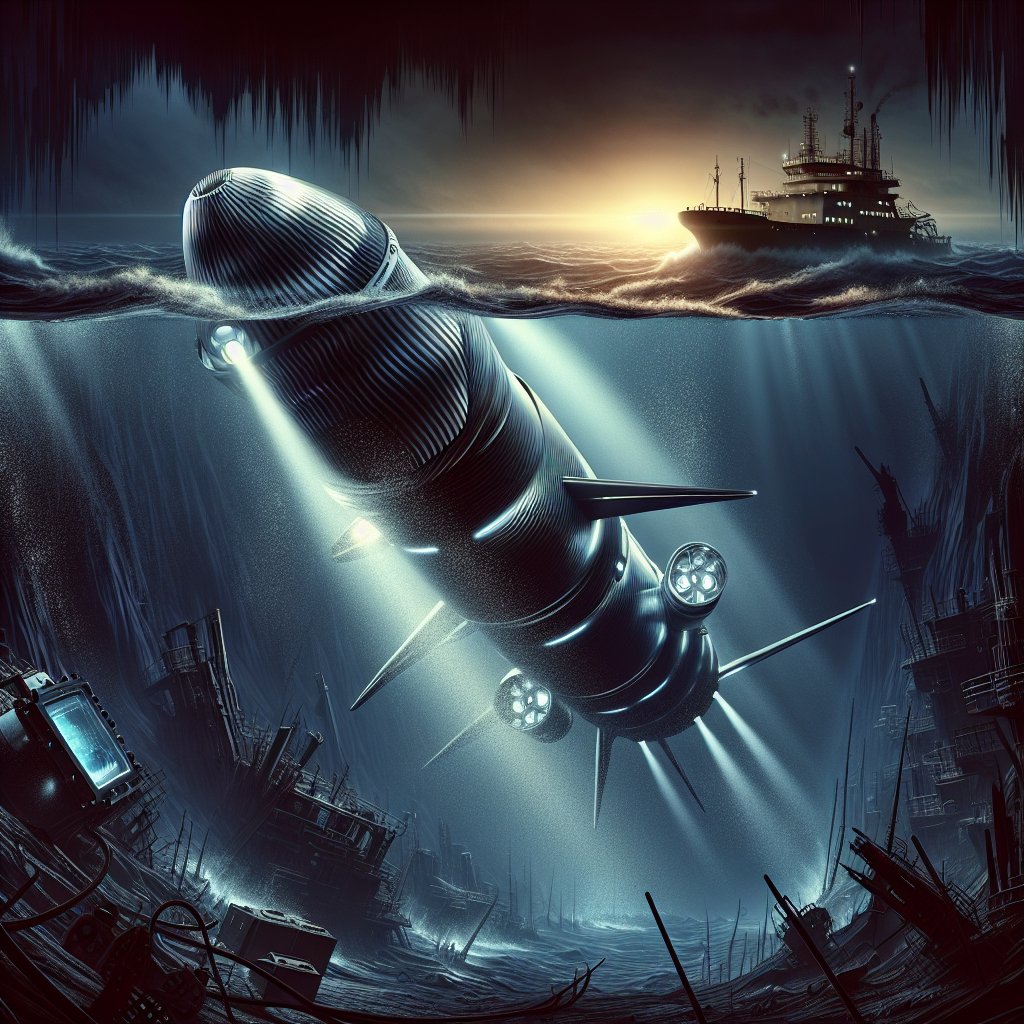Image created by AI
Titan Sub Disaster: Lawsuit Claims Negligence Caused Crew to Knowingly Face Death
In a tragic turn of events that resonates through the deep-sea exploration community, a lawsuit has emerged from the depths of last year’s Titan submersible disaster, bringing harrowing allegations against the company responsible for its construction and last expedition, OceanGate Inc. The claim suggests a grim realization among the crew of their mortal peril before the craft’s implosion.
The legal action was initiated by the estate of the renowned French explorer, Paul-Henri Nargeolet, who alongside four others, met his end during a mission to the Titanic wreckage. The suit targets OceanGate Inc., the late co-founder and CEO Stockton Rush, and additional entities, seeking reparations in excess of $50 million.
Central to the allegations is the decision to use carbon fiber for the Titan's hull, a material untested in the context of deep-sea submersibles—a stark departure from the conventional and robust titanium. The lawsuit suggests that Rush's preference for lighter materials over safety played a pivotal role in the catastrophe.
Moreover, the certification—or lack thereof—is brought under scrutiny. The refusal to obtain certification from DNV, an international advisory famed for its stringent safety standards in maritime operations, perhaps rejected a possible lifeline that could have averted tragedy.
The disquieting assertion that those aboard were aware of their fate adds an unequivocal darkness to the lawsuit. According to the document, an “acoustic safety system” installed in the craft, designed to detect the ominous crackling of carbon fiber under extreme pressure, would have been the harrowing herald of their looming demise.
The OceanGate Titan embarked on its ill-fated dive in June 2023, plunging into the abyss with the aim to add another layer to the storied tapestry of the Titanic's undersea grave. However, this mission would not be inscribed in the annals of exploration triumphs, as the submersible imploded under the weight of the ocean's crushing depths.
The aftermath saw a multinational rescue effort, spearheaded by the U.S. Coast Guard, which culminated in finding debris and the heartrending recovery of human remains. OceanGate, now with all operations indefinitely halted, has refrained from public comment regarding the lawsuit.
The tragic loss of Nargeolet, an esteemed figure in the field and dubbed “Mr. Titanic” for his numerous dives to the famed site, casts a long shadow. The lawsuit serves not only as a pursuit of justice for the victims' families but also as a stark reminder of the perils faced by those who dare to venture where most cannot.
To many, the Titan disaster is more than a tale of misfortune; it is a somber testament to the need for uncompromising safety standards in humanity's quest to reach into the unknown. As the inquiry into the incident continues, with a public hearing scheduled for September, the maritime and exploratory communities watch on, mourning the loss of their companions and contemplating the lessons that must be gleaned from such a grave occurrence.










